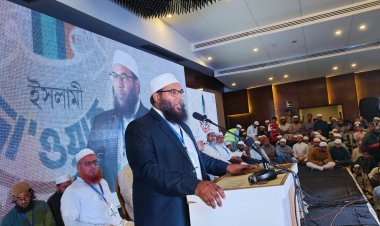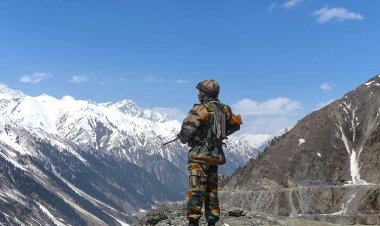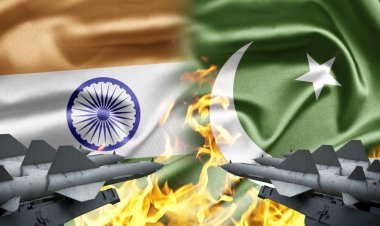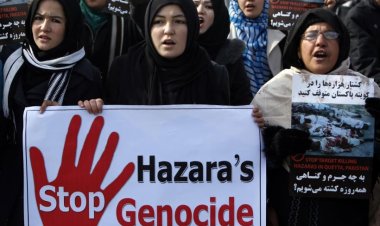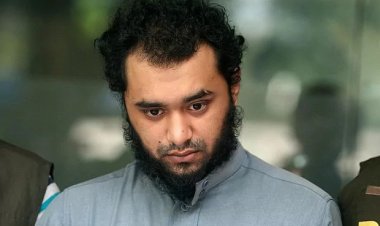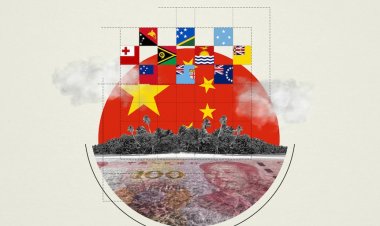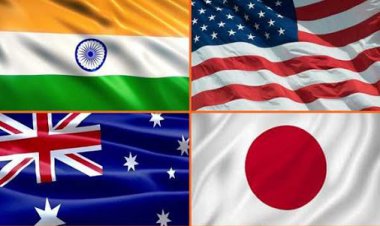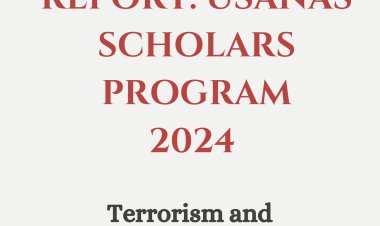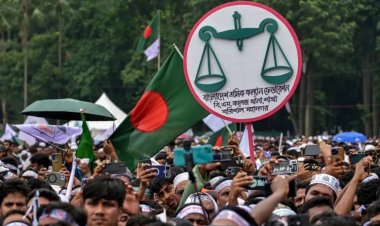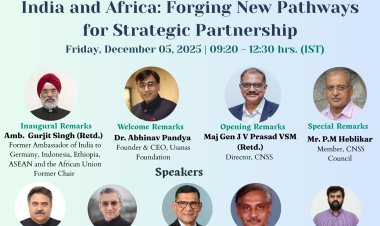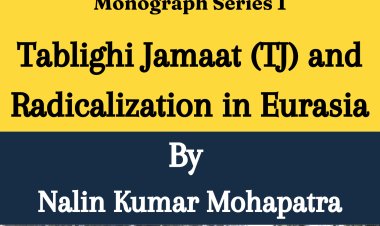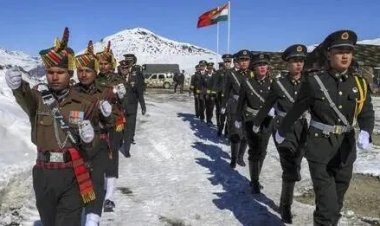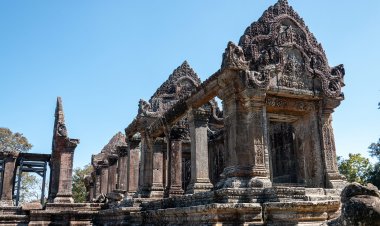Explained: The Commonwealth of Nations-history, structure, functions and relevance
The following article explains the Commonwealth of Nations' history and structure. The article raises the issues surrounding reputation laundering, climate change, human rights and trade. It has tried to suggest practical solutions to mitigate the challenges.
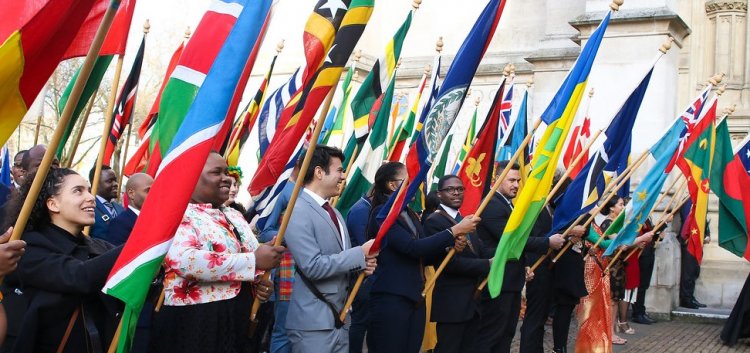
Explainer
By Anirban Dutta
History
The concept emerged in a public speech at Adelaide by the former British Foreign Secretary Lord Rosebery, who tagged the British Empire as a 'Commonwealth of Nations' in January 1884. The Imperial Conference of 1926 showed that the dominions (Australia, New Zealand, South Africa and Canada) in the British Empire were equal and not subordinate to the U.K. Under the Statute of Westminster (1931), the self-governing states (Australia, New Zealand, South Africa and Canada) and the U.K. founded the British Commonwealth of Nations. However, the term 'British' was dropped in 1946 as the decolonisation spree started in 1945. The London Declaration of 1949 modified the requirement of accepting the monarch as the head of the state, paving the way for the newly decolonised states to become a member of the Commonwealth. The shared spirit of the Imperial Conference (1926) and the London Declaration (1949) paved the way for decolonised states to join the Commonwealth based on the principles of equality and voluntary cooperation, making the membership rise from seven states in 1947 to fifty-four states covering 2.5 billion people.
Structure
The head of the Commonwealth is the current U.K. monarch Queen Elizabeth II. The Commonwealth of Nations is led by the Secretary-General, who publicly represents the grouping. The Secretary-General safeguards democracy promotion, good governance, the rule of law, free trade, individual liberty, and world peace. The member states are represented by their High Commissioners at the Commonwealth Secretariat Board of Governors to meet yearly for approval of budgets, strategic plans and work programmes. The Executive Council discharges functions related to policy, budgets and audits. The Commonwealth Chair-in-Office, led by Rwandan President Paul Kagame, represents the 'Good Offices' for conflict prevention and resolution. The Commonwealth Chair-in-Office regularly hosts the Commonwealth Heads of Government Meeting (CHOGM). The meeting took place in Rwanda from 20-25 June 2022 under the banner 'Delivering a Common Future: Connecting, Innovating, Transforming'. The Commonwealth supports three intergovernmental organisations, the Commonwealth Foundation, Commonwealth Secretariat, and Commonwealth of Learning to foster democracy, development and education.
Functions
Under the catchphrase 'we, the people of the Commonwealth', the Charter discharges various functions, from recognising the uncertainty in economic patterns to threats to peace and security. The Commonwealth Ministerial Action Group addresses the violations of the values of the Commonwealth. In the prism of human rights, the Lusaka Declaration on Racism and Racial Prejudice (1979) desired to ensure equal rights irrespective of race, colour, and political belief. It emphasised tolerance and respect toward religious freedom for the dignity of human beings. The Commonwealth recognised the separation of powers among the legislature, executive and judiciary. In terms of sustainable development, it aims to promote economic resilience, social equity for capacity building, development and sustainable environmental management. The commitments of the grouping in terms of sustainable development can be seen in Langkawi Declaration on the Environment (1989), aiming to combat environmental issues to attain sustainable economic development. The spirit of gender equality can be seen in the Ottawa Declaration on Women and Structural Adjustment (1991), which envisioned the inclusion of women in the decision-making process and the advancement of women's rights in society. The Commonwealth considers the integration of vulnerable and least developed nations on its agenda. The integration of the small states is evident through the Edinburgh Economic Declaration (1997), which aims to address uneven development in the least developed nations. The Commonwealth pledged the development of peace through the Nassau Declaration on World Order (2015) to promote peace and security.
Relevance
Reputation laundering
Despite its imperial origins, the Commonwealth has played a significant role in combating racial discrimination. With its radical tradition, the Commonwealth has played a crucial role in debt relief for the poorest nations. Similarly, the forum is regularly used for 'reputation laundering' where its benign image can be used to divert attention. The case of the former Sri Lankan President Mahinda Rajapaksa is an essential point of discussion. In 2013, Rajapaksa hosted the Commonwealth summit at a time when his government was accused of war crimes committed during the civil war. Therefore, due to its benign image, the Commonwealth can be used by politicians to distract public attention.
Human rights
The Commonwealth in the current era has eighty official and non-official entities to promote partnerships among various governments, businesses and civil society. Therefore, it promotes cordial partnerships and raises the opportunity to discuss various concerns surrounding development, democracy, good governance and international peace. However, despite the advantages, the Commonwealth is fraught with challenges. The Commonwealth Human Rights Initiative's critique of Commonwealth countries' performance in the U.N. Human Rights Council compared the poor human rights performance of thirteen (Cameroon, Canada, Ghana, Bangladesh, Malaysia, Mauritius, Nigeria, Pakistan, India, South Africa, Sri Lanka, United Kingdom and Zambia) countries that deepened human rights commitment under various forums funded by the Commonwealth Human Rights Initiative. Therefore, the Commonwealth countries need a mechanism to monitor the adherence to human rights. Despite its challenges, the Commonwealth supports good governance and democratic purposes as it suspended Nigeria in 1995 after Ken Saro Wiwa's execution and Pakistan in 1999 after General Musharaff's coup but its political will to prevent human rights faded as the Commonwealth failed to encourage the adherence to human rights as per international standards.
Climate change
The equality in status among the Commonwealth countries is not equal in terms of the 'equity gap' of carbon emissions. The 'equity gap' can be justified by comparing the emission mitigation of two Commonwealth countries, Australia and Zambia. In this case, Australia with significant emissions, the emission reduction would have been 31.36 tonnes of CO2 but it pledged to reduce its emissions by only 8.49 tonnes of CO2. However, despite meagre emissions, Zambia pledged to reduce emissions by 2.77 tonnes of CO2 when it could have reduced the target to 0.19 tonnes of CO2. Therefore, the wealthier members of the Commonwealth are less concerned about carbon emissions compared to its poorer members working hard to prevent climate change.
Trade and investment
In terms of economic growth, all is not over for the Commonwealth of Nations as it seeks to develop its economies and facilitate growth, encouraging the member states to invest in each other's economies. The trade among the Commonwealth countries facilitated investment in the Commonwealth's least developed countries (LDCs). The least developed countries attracted U.S. $ 81 billion of foreign direct investment (FDI) in their economies, flourishing the engagement of goods and services among the developed and developing members. Such a successful commercial relationship is likely to attract disputes, and the Commonwealth of Nations is divided on its effectiveness in resolving disputes. In most member countries, the judicial system is overburdened, making the commercial cases unresolved for years. The case of Trinidad and Tobago, Bangladesh, India, Singapore, New Zealand and Rwanda can be argued here in this case. As per the World Bank's Doing Business rankings, the courts of New Zealand, Rwanda and Singapore take less than ten months to enforce a contract, whereas the courts of Bangladesh and India take four years. Therefore, it raises fundamental questions about the capability of the Commonwealth of Nations to create better opportunities for businesses aiming to expand trade and investments in the Commonwealth countries.
Conclusion
In conclusion, the Commonwealth needs an adequate mechanism to counteract the threats faced by the member states. In the case of human rights, the Commonwealth needs to reinstate, establish and strengthen National Human Rights Institutions (NHRI) for human rights monitoring to deter the implementation of erstwhile colonial rules to curtail dissent. Therefore, the Commonwealth of Nations needs political will to raise awareness and develop consensus on issues concerning human rights. The Commonwealth must favour international commercial arbitration practices as it will reap benefits quickly. The reform of the judicial processes is unlikely despite the ineffectiveness of the existing dispute resolution tactics that pose a roadblock for the Commonwealth to fulfilling its agenda of attaining prosperity by boosting trade.
Disclaimer: This paper is the author's individual scholastic contribution and does not necessarily reflect the organization's viewpoint.
The author is an intern at the Usanas Foundation. He has completed his M.A. in International Studies from the Symbiosis School of International Studies, Pune.

